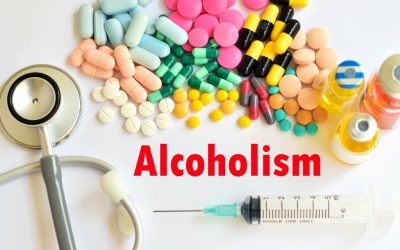Popular media often portrays people with mental illness as unsympathetic characters, a danger to themselves or others because of a chemical imbalance in their brain — and the fact that it moves the plot forward. Graduates of Vertava Health’s programs have secret Facebook groups and chat forums to connect with each other. In addition to that, there are numerous support outlets that allow people in recovery to connect with one another. Meditation, though a solitary activity, is also important to nurture the mind and develop a healthy mind/body relationship, increasing mindfulness and well-being. Meditation teaches you the difference between loneliness and solitude, which means feeling at peace with yourself even when you are alone.
Being alone from time to time is healthy and allows you to reconnect with yourself and enjoy solitude. In general, those who struggle with loneliness are at higher risk of developing an addiction to drugs or alcohol. In a recent survey, nearly three out of four adults reported feeling a deep sense of loneliness. These changes, together with appropriate therapy programs, can have a strong positive impact on your life and help you fight both loneliness and addiction. Using technology yourself is one thing… Then trying to support somebody and talk someone through who has got very little digital skill is quite difficult.
What Is the Danger of Isolation in Recovery?
We assume people aren’t interested in our company and that if we reach out to them they will reject us and turn us down. As a result we take little initiative and find excuses to turn down invitations when we do get them. Self-prescribed isolation can also start due to the stress of constantly interacting with people who want things from you, who have expectations of your behavior that you cannot match, or not wanting to have to explain the effects of a trauma you’ve endured. If you’re not sure how to make amends, talk to your therapist or support group. They can help you plan apologies filled with care, compassion, and patience.
Loneliness and substance abuse have the potential to work together in a vicious cycle. When people are feeling lonely, misunderstood, or unloved, they may turn to drugs or alcohol. This is their means to distract themselves or become numb to the burden of loneliness. It is normal to feel lonely sometimes when one’s need to belong is not met. But intense loneliness can also be symptomatic of a deeper problem—and it can result in unhealthy behaviors, like drug or alcohol abuse.
Be More Social
Getting higher scores in each subscale means higher feeling of loneliness. If you or someone you know experiences mental health issues, it is important to seek help from a qualified professional. Our Resource Specialist can help you find expert mental health resources to recover in your community. Contact us now for more information on this free service to our users. Loneliness can deal damage to the human body and mind in very real ways.
- The current study assessed the status of loneliness as an individual psychological factor and compared it in individuals with and without substance dependence disorder.
- We need people who understand what we’re going through, who can provide guidance, encouragement, and a listening ear.
- I highly recommend that anyone struggling with addiction try a 12-step support group during their journey.
- The lonely also reported poorer mental health and lower life satisfaction.
- The effort to rejoin old social circles or join new ones becomes more significant and harder to do the longer they’ve been out of practice with engaging with new people in a genuine way.
- Surveillance and other people being able to access personal details were also off-putting.
These devices enabled quick identification of problems, although it should be noted that service providers reported that a concern among some older adults was the idea of digital surveillance, feeling it intruded on their privacy. Monitoring device use therefore needed to be negotiated with individual service users and their families. Generally, drug abuse is a multifactorial disorder in which every factor has its specific and common effects on the development and maintenance of addiction (14). Thus, any intervention concerning the prevention and treatment of addicted individuals should consider these factors or variables (1). The current study assessed the status of loneliness as an individual psychological factor and compared it in individuals with and without substance dependence disorder.
Consent for publication
Developing effective interventions is not a simple task because there’s no single underlying cause of loneliness, she says. Also, he says, schools can help foster environments in which children look for, identify and intervene when a peer seems lonely or disconnected from others. Loneliness is an experience that has been around since the beginning of time—and we all deal with it, according to Ami Rokach, PhD, an instructor at York University in Canada and a clinical psychologist.
And there’s a piece of work there that needs to be done in order to support that person to a point where they may feel that “actually do you know what, I do want to connect with people” (P006). Loneliness is a personal and subjective experience, one which is defined not by the quantity of our relationships but by their subjective quality. A person might have many friends around them or live with a partner, yet still feel the deep ache of emotional or social isolation (read Are You Married but Lonely here). The fact that the first thing that these programs do is to put people in direct community with people who can share their life experiences is no accident.
In order to reassure and encourage older adults, it is important that service providers feel confident not only in their own ability but also in the intervention they are trying to employ. Training may also encourage volunteer service providers, many of whom cite gaining skills as a reason for volunteering [59]. While this was not a priority in the context of a pandemic, when rapid intervention was required, the lifting of social restrictions makes co-production more possible.
Perseverance is the belief in yourself that no matter how hard things get, you’ll keep going. This mindset during recovery is essential as it helps motivate and encourage you when times get tough. Additionally, isolating may cause you to lose interest in activities you once enjoyed. You might also become more prone to negative thoughts or show signs of depression or anxiety. You don’t have to go to a gym to stay fit—you can find many exercises online and do them from home.
Reach Out to Your Support System
On the other hand, organisations may implement interventions aimed at reducing loneliness and social isolation but, without taking baseline and follow-up measures, will be unable to assess whether or not the interventions are effective. In line with previous research [27, 40, 41], our participants reported diversity in older adults’ confidence, motivation, skills, abilities and access with regards to technology. For example, an evidence review of the use of video call technology to improve social connectedness highlighted that, to enhance uptake, the design of software and devices needs to be informed by older adults’ competency and conditions [46]. Research has shown that stereotypes of older adults as technophobic, incapable or unwilling to engage with technology are often inaccurate [47] and it is important for service providers to assess each older adult’s needs individually. To facilitate this, service providers could conduct brief assessments of service users’ technological readiness at their initial engagement with the service. Assessments could be based on technology use theory to include questions on confidence, motivation and values with regards to social connection and technology.
Two hundred and twenty eight individuals were enrolled in this cross sectional study. Hundred and eighteen drug abusers were recruited through random sampling among the clients referred to Baharan Psychiatric Hospital, and 110 non-substance dependent loneliness in sobriety individuals were selected from their companions, students, and staffs. In addition to clinical interview, the Iranian short version of the social and emotional loneliness scale for adults (SELSA-S) was used to evaluate the participants.

